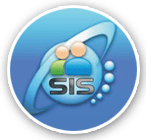Exam software is designed to facilitate the creation, administration, and evaluation of tests and assessments, ranging from simple quizzes to complex exams.
Exam software typically allows users to create various types of questions, manage test settings, generate random questions, time exams, and automate grading processes. The number of tests conducted is not a fixed value but rather determined by the users who create and administer tests using the software.
If you have a specific exam software in mind, you may want to refer to its documentation or contact the software provider for information on its capabilities and limitations. Keep in mind that different exam software platforms may offer different features and cater to various educational or assessment needs.
There are various software platforms used in conducting online examinations, some of which include **Yoctel EOA**. **Yoctel EOA platforms** typically provide features such as question banks, randomization of questions, timed exams, and automated grading online exams work by presenting questions to the test-taker through a web-based interface. The test-taker then answers the questions within a set amount of time, and the software platform records their responses.
Depending on the platform, the exam may be timed and the software may enforce specific rules such as prohibiting the use of external resources or preventing the test-taker from navigating away from the exam screen. Once the exam is completed, the software platform typically provides automated grading or scoring, and the results are made available to the exam administrator or the test-taker.
Online exam software offers a range of benefits for both educators and organizations conducting assessments. Here are some key advantages:
Flexibility and Accessibility: Participants can take exams from anywhere with an internet connection, providing flexibility for remote learning or remote workforce assessments.
Cost-Effective: Online exams can reduce costs associated with printing, distribution, and manual grading of traditional paper-based exams.
Time Efficiency: Automatic grading and instant result generation save time for both instructors and participants.
Quick Results: Participants receive immediate feedback on their performance, facilitating a faster learning and improvement cycle.
Reduced Administrative Burden: Automated processes, such as registration, scheduling, and grading, reduce the administrative workload for educators and organizers.
Security Measures: Online exam software often includes security features such as authentication, secure exam delivery, browser restrictions, and proctoring tools to maintain the integrity of assessments.
Customization of Assessments: Educators can easily create a variety of question types, randomize questions, and set different parameters for individualized assessments.
Resource Efficiency: Eliminates the need for physical exam papers, reducing paper usage and contributing to environmental sustainability.
Scalability: Online exam platforms can accommodate a large number of participants simultaneously, making them suitable for both small and large-scale assessments.
Data Analysis and Reporting: Robust reporting and analytics tools allow educators and organizations to analyze performance trends, identify areas for improvement, and make data-driven decisions.
Adaptive Testing: Some online exam software supports adaptive testing, adjusting the difficulty of questions based on the participant's previous responses, providing a more accurate assessment of their abilities.
Integration with Learning Management Systems (LMS): Seamless integration with LMS platforms allows for a cohesive learning and assessment experience for participants and educators.
Real-time Monitoring: Proctoring features enable real-time monitoring of participants during exams, deterring and detecting potential cheating behaviors.
User-Friendly Interface: Intuitive interfaces make it easy for both educators and participants to navigate the platform.
Global Reach: Facilitates assessments for participants across different geographical locations, making it ideal for international programs or certifications.
When implemented effectively, online exam software can enhance the overall efficiency, effectiveness, and security of the assessment process. It's important to choose a reliable and Secure online exam platform that aligns with the specific needs and goals of the educational institution or organization.







